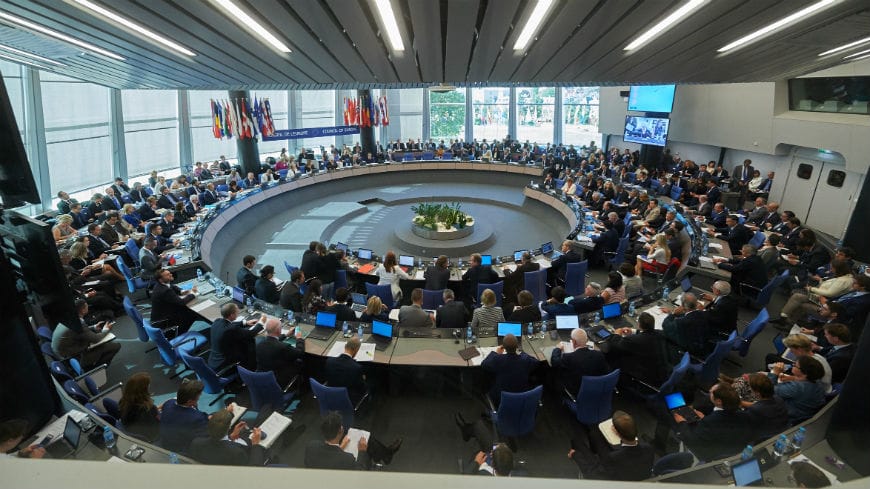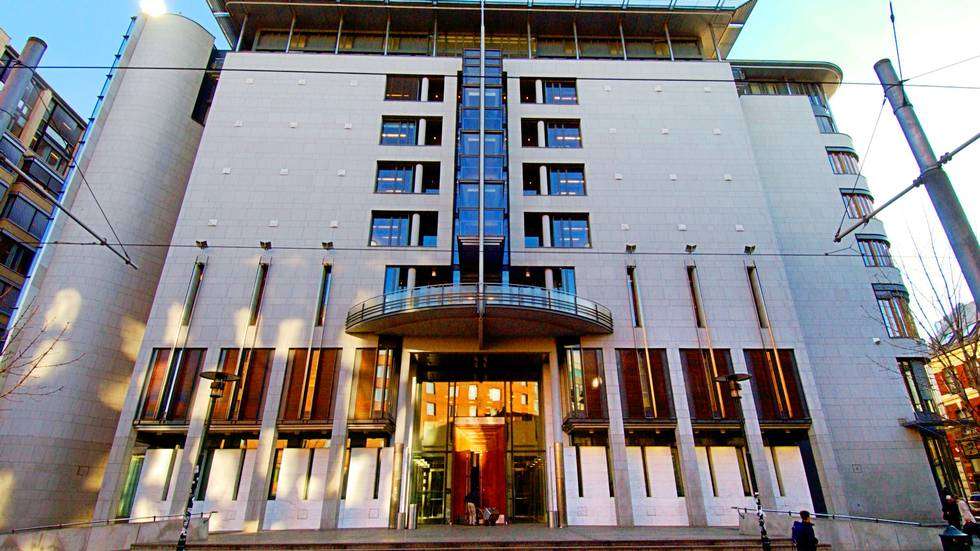Anders Breivik did not suffer from inhuman or degrading treatments while in prison, rules the ECtHR
in Giurisprudenza Penale Web, 2018, 6 – ISSN 2499-846X

European Court of Human Rights, Fifth Section,
Decision 29 May – 21 June 2018, Hansen v. Norway
Application no. 48852/2017
On 21 June 2018, the European Court of Human Rights (‘ECtHR’) rendered his decision upon M. Anders Breivik application, whereby He claimed the violation by Norway of articles 3 and 8 of the European Convention on Human Rights (‘ECHR’). The Court ruled the application being manifestly ill-founded and thus inadmissible.
1. The Facts
The case relates to the well known Norwegian terrorist, Anders Breivik (who now goes under the name of Fjotolf Hansen), who carried out a double attack in Olso and Utoya Island on 22 July 2011, whereby he murdered 77 people and wounded over 300.
He then surrendered, was arrested, tried, and convicted to 21 years imprisonment. Ever since his arrest, He has been detained in maximum security conditions, which include solitary confinement, body searches and controls over his correspondence, telephone calls, and visits.
Although in relatively good custodial conditions, Breivik lodged a petition before the Oslo District Court claiming that his prolonged isolation amounted to an inhuman and degrading treatment as provided in article 3 ECHR and the mentioned controls by the prison staff violated his right to privacy under art. 8 ECHR.
At the outset, the local Court found the applicant had actually been victim of the violation of art. 3, whereas it denied all claims under article 8, and sentenced the government to a financial compensation towards M. Breivik. (For a detailed analysis of this ruling, as well as for a complete description of the applicant’s custodial conditions, see L. Roccatagliata, Anders Breivik suffered from inhuman and degrading treatments while in prison. The Oslo District Court sentences Norway to financial compensation for violating art. 3 ECHR, in Giurisprudenza Penale Web, 2016, 4).
However, the High Court and the Supreme Court of Norway subsequently overruled the mentioned verdict and found no violation of the ECHR of any sort. In fact, all detention measures were fully justified by a well established risk of active and passive violence, in and out of prison, that M. Breivik would constantly be exposed to. In many occasions, He declared no regret or remorse for his actions, that were fully justified by his goal, which was the one to lead a fascist and ‘ethno-nationalist’ revolt in Europe. Also, the risk of liaising with other extremist individuals or groups was deemed high.
On another standpoint, Norwegian authorities also undertook several compensatory measures, for M. Breivik being able to stand solitary confinement. In addition to daily contact with prison staff, the applicant had been offered contact with a priest, nurses and a volunteer prison visitor. He had also had contact with a psychologist, and had been monitored closely by the prisons’ health services and no clear signs of harm due to his solitary confinement had been observed.
Following the Supreme Court’s ruling, M. Breivik raised an application to the ECtHR, complaining under Articles 3 and 8 about the conditions of his detention, in particular his solitary confinement; his being subject to body searches; the control of his correspondence, and his not being treated for mental vulnerability.
2. General findings by the Court
On a general viewpoint, The Court noted that Article 3 of the Convention enshrines one of the most fundamental values of democratic societies. Even in the most difficult of circumstances, such as the fight against terrorism or crime, the Convention prohibits in absolute terms torture or inhuman or degrading treatment or punishment. Ill-treatment must attain a minimum level of severity if it is to fall within the scope of Article 3. The assessment of this minimum depends on all the circumstances of the case, such as the duration of the treatment, its physical or mental effects and, in some cases, the sex, age and state of health of the victim. In order for a punishment or treatment associated with it to be “inhuman” or “degrading”, the suffering or humiliation involved must in any event go beyond that inevitable element of suffering or humiliation connected with a given form of legitimate treatment or punishment (Ramirez Sanchez v. France).
When assessing conditions of detention, account has to be taken of the cumulative effects of those conditions, as well as the specific allegations made by the applicant (A. and Others v. the United Kingdom; Ramirez Sanchez v. France). Besides the extent to which he has been subject to body searches, the applicant’s allegations in the present case concerned, specifically, his being subject to solitary confinement. The Court has held that, although the prohibition of contact with other prisoners for security, disciplinary or protective reasons can in certain circumstances be justified, solitary confinement, even in cases entailing only relative isolation, cannot be imposed on a prisoner indefinitely. Indeed, solitary confinement, which is a form of “imprisonment within the prison”, should be resorted to only exceptionally and after every precaution has been taken, as specified in paragraph 53.1 of the European Prison Rules adopted by the Committee of Ministers on 11 January 2006 (Ramirez Sanchez v. France; Öcalan v. Turkey no. 2).
3. The solution to the case by the Court
With respect to the nature of the applicant’s solitary confinement, the Court observed that he has had access to university studies, in which context he has received documents and sometimes recorded lectures. He has also had access to television and a daily newspaper. He has been entitled to write and receive letters, though there has been control of his correspondence. Furthermore, he has in principle been entitled to monitored visits and telephone calls.
In summary, the applicant has not been subject to “complete sensory” or “total social” isolation, but one that has been “partial and relative” (see Ramirez Sanchez v. France). In view of the length of the period for which the applicant has been subject to that type of solitary confinement, a rigorous examination was nonetheless called for in order to determine whether it was justified, whether the measures taken were necessary and proportionate compared to the available alternatives, what safeguards were afforded to the applicant and what measures were taken by the authorities to ensure that the applicant’s physical and mental condition was compatible with his continued solitary confinement.
The Court observed that the conditions in question were implemented for the purpose of safeguarding critical security concerns as well as the applicant’s health and dignity. Also, the degree of isolation was based on verifiable professional assessments, and the domestic authorities had established a number of measures to remedy the solitary confinement.
The Court also noted that the High Court meticulously scrutinised the balance between the degree of the applicant’s relative isolation on the one hand, and the degree of compensating measures on the other, as struck by the correctional services authorities.
The Court, having carefully examined all the material available to it, found no grounds for reaching a different conclusion to that of the domestic courts with respect to the applicant’s confinement to relative isolation not having implied treatment or punishment exceeding the threshold of what is “inhuman or degrading” and hence contrary to Article 3.
Similar conclusions were drawn by the Court with respect to body searches.
In the light of the above, and viewing the conditions of the applicant’s detention as a whole, the Court found that his complaint under Article 3 of the Convention does not disclose any appearance of a violation.
As to the control of the applicant’s correspondence, the Court concurred with the High Court’s considerations that there had been a strong social interest in hindering the applicant from sending letters containing direct or indirect appeals for violence or contributing to the establishment of extremist networks. Individual assessments of each letter had been carried out and the control of his correspondence had not prevented his contact with family, close friends or other social relations established prior to his detention. Consequently, the Court found no violation of article 8 either.
In conclusion, the Court found that the application was manifestly ill-founded and hence declared it inadmissible.
How to quote the article in a bibliography:
L. Roccatagliata, Anders Breivik did not suffer from inhuman or degrading treatments while in prison, rules the ECtHR, in Giurisprudenza Penale Web, 2018, 6








